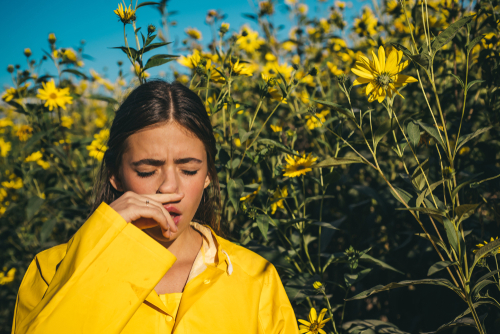Should I Get LASIK Before Allergy Season?

Spring can be a tough time for anyone with allergies. Somewhere between 10 and 30 percent of adults suffer from seasonal allergies.
If you have allergies and want to have LASIK, you may be concerned about when to have your procedure. It’s best not to have it during allergy season.
But should you have it before or after? Keep reading to learn more about how allergies can affect getting LASIK!
LASIK and Allergies
Patients with allergies don’t tend to have a higher rate of complications when they get LASIK. It is safe to have LASIK if you have allergies that cause conjunctivitis.
But it can affect how you heal if you’re exposed to allergens while you’re recovering from LASIK. If you have any allergic symptoms while recovering from LASIK, it’s harder to not rub your eyes.
If there is a rule to follow after LASIK, it’s to not rub your eyes. The reason for this is because, during LASIK, a small flap is created in your cornea.
This flap will heal over time but it can take a few months. While the flap heals, rubbing your eyes could run the risk of dislocating the flap. If this occurs, it often requires a follow-up procedure to fix the problem.
Allergic symptoms are also generally uncomfortable. They can make inflammation in your eyes even worse after surgery.
Even if you experience conjunctivitis after surgery, your doctor will prescribe anti-inflammatory and antibiotic eye drops. These eye drops should keep your eyes from becoming infected or in too much pain.
If you have severe allergies, steroid medication may also be prescribed. If you can, do your best to avoid any and all allergens when recovering after LASIK.
Recovery Time
After you have LASIK surgery, your eyes will need time to heal. While initial recovery only takes a matter of days or weeks, the full recovery takes several months.
You won’t feel any different during much of that recovery. The corneal flap made during surgery acts as a natural bandage to protect your eye.
It takes about six months for the corneal flap to fully heal. During that time, it’s safest to do what you can to avoid infection or dislocating your corneal flap.
Most patients don’t need to do much to avoid complications during the majority of their recovery. If you suffer from allergies, it can be harder.
It may be wise to time your surgery so you can avoid allergens during your full recovery.
Timing Your Surgery
Having LASIK right before allergy season means you’ll still be in recovery during allergy season. Since it’s the recovery period where your eyes are most vulnerable, it’s best to have LASIK after allergy season.
The ideal time for patients with seasonal allergies is in the summer or fall. This ensures that the typical allergy season doesn’t fall during your six-month full recovery time.
This approach is cautious as you can have LASIK and recover while experiencing allergy symptoms. To have the least amount of stress and the best recovery, wait until after allergy season.
Wondering if LASIK could be right for you? Schedule a LASIK consultation at Berg Feinfield Vision Correction in South Pasadena, CA!








